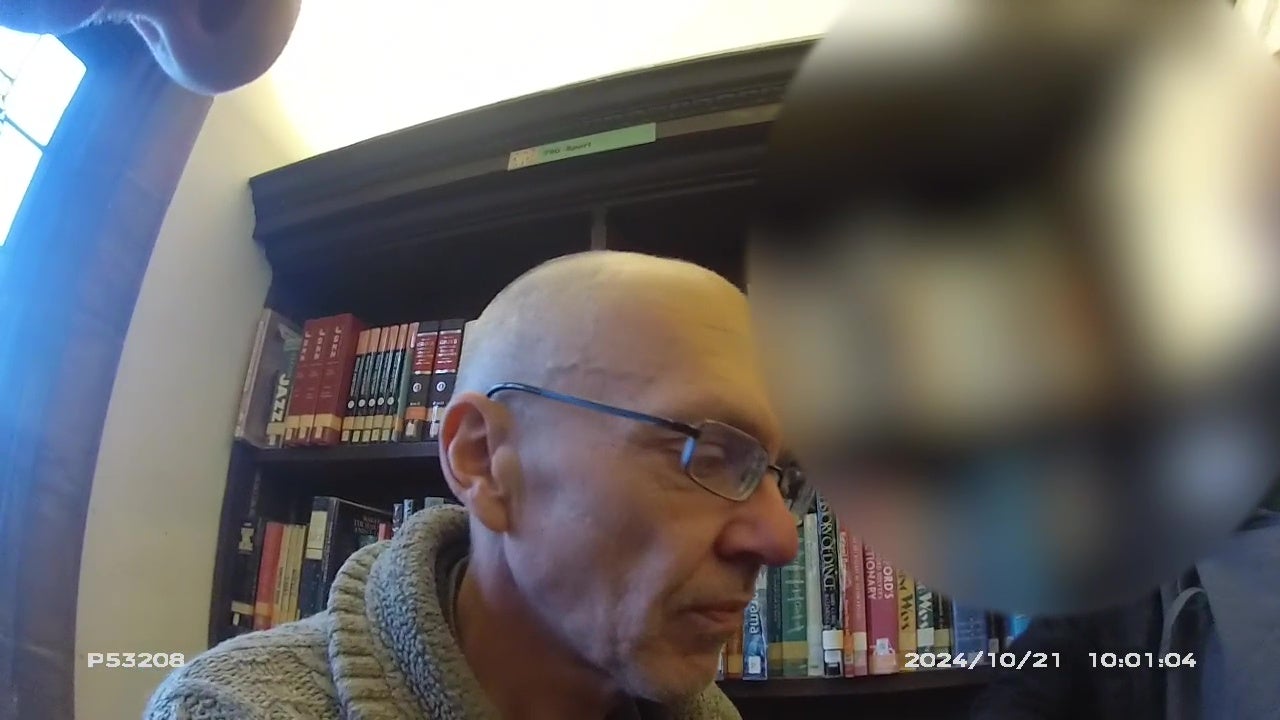
The daughter of a woman who was murdered by a man who had been living off-grid to avoid recall to prison said that criminals cannot remain at large as there is “too much at stake and our communities need protecting”.
Anita Rose, 57, had been out on a morning dog walk in Brantham, Suffolk when she was set upon by 56-year-old Roy Barclay in what prosecutors called a “vicious and brutal attack”.
Barclay, who had been convicted and jailed 10 years earlier over a 2015 attack on a pensioner which prosecutors said bore similarities, had been wanted on recall at the time over a breach of his licence conditions, police said.
The defendant had been released from prison in February 2020 but had not been living at a fixed address.
Suffolk Police said there would be a review of information sharing processes.
Ms Rose’s eldest daughter, who gave her name as Jess, fought back tears as she said outside Ipswich Crown Court that Barclay had “shown no remorse”.
“We will now look towards changes that need to be made within the probation services and the justice system,” said Jess.

“We need to make sure that our communities are safe and that people are monitored, that criminals are taken back to prison when they break the terms of their probation.
“Criminals cannot remain at large. There’s too much at stake and our communities need protecting.”
It is understood that the Probation Service issued a recall notice for Barclay following a breach of his licence conditions.
When a person’s licence has been revoked, the relevant local police force will be notified, and the individual will become wanted by police.
This provides police with the authority and responsibility required to apprehend the individual and return the offender to custody, and the process is the responsibility of the police.
Barclay had denied murdering Ms Rose but was found guilty by a jury at Ipswich Crown Court, by unanimous verdict, after around two-and-a-half hours of deliberation on Wednesday.
Barclay, who wore a grey jumper, glasses and had a white beard and thinning hair, showed no emotion as he sat in the secure dock of the court.
The judge, Martyn Levett, said: “The sentence is one that inevitably is going to be life in prison, and the length of it is going to be very lengthy.”
Christopher Paxton KC, prosecuting, earlier told the court that mother-of-six Ms Rose left her home in Brantham, Suffolk to walk her dog Bruce, a springer spaniel, on the morning of July 24 2024.

She was found by passers-by but died in hospital four days later.
Mr Paxton said Barclay “lived mostly in the countryside, wandering the fields and lanes, sleeping in various makeshift camps”.
“He lived off-grid because for two years, Roy Barclay had been unlawfully at large,” said Mr Paxton.
“He had been on the run trying to avoid the police and authorities to try and avoid being recalled back to prison.”
Jurors were told that Barclay had previously pleaded guilty, over a separate incident in 2015, to grievous bodily harm with intent over an attack on an 82-year-old man in Walton-on-the-Naze, Essex.
The pensioner, Leslie Gunfield, had told Barclay that he would inform security about him going through rubbish bins at a Co-op supermarket, the court heard.
Mr Gunfield was left with serious injuries to his head and required 10 titanium plates for fractures he suffered after being attacked by Barclay.
He was found with a dog lead wrapped around his foot, which the prosecution said was similar to the way Ms Rose’s body was found, with a dog lead “tightly” wrapped around her leg.
Mr Paxton earlier told jurors that Mr Gunfield “was taken to the ground and attacked on the ground by Roy Barclay, just as Anita Rose was”.
Mr Paxton said Barclay was a “dog lover” who had volunteered at a dog charity while on probation, adding that a dog lead wrapped around a body could “almost be described as a signature of Roy Barclay”.

The prosecutor described Barclay as “irrational and dangerous”.
Giving his closing speech, Mr Paxton said: “Two very different worlds collided: Anita, partner to Richard, a mother and grandmother, out with the family dog Bruce, before she went off to work.
“Her world collided with Roy Barclay’s world, a desperate man on the run from police for two years, having been in prison for beating Leslie Gunfield’s face to a pulp.
“Roy Barclay took Anita Rose’s life in an explosion of violence.”
Barclay did not give evidence at his trial.
Mr Paxton said Barclay had carried out online searches after Ms Rose was attacked which included “Can barbed wire be swabbed for DNA?” and “How long does DNA last at a crime scene?”.
The prosecutor said Barclay had kept a “treasure trove” of Ms Rose’s items including her jacket and phone.
Mr Paxton said Barclay’s walking boots, which “amounted to the murder weapon”, were found in one of the defendant’s camps.
Anita Rose’s daughter Jess said her mother was a “strong, brave, vibrant woman”.
“She enjoyed living in Brantham and would walk in Brantham every single day,” she said.
“She felt safe in Brantham. She should have been able to continue to walk Bruce (her dog) safely every day in the wonderful countryside of Brantham.”
Detective Superintendent Mike Brown said outside court that the murder was a “brutal attack on a lone woman in an isolated rural area on the outskirts of a peaceful village”.
“We may never fully understand the motive behind it and our thoughts remain firmly with Anita’s family at the conclusion of this trial,” he said.
Assistant Chief Constable Alice Scott said that a “voluntary partnership review” would be conducted under the Multi-Agency Public Protection Arrangements process involving the police and the probation service.
“It will look closely at the information sharing processes and how the organisations collaborated in terms of Barclay who was wanted on recall to prison when he murdered Anita,” she said.
“This review will be a thorough assessment and scrutiny of the processes concerning Barclay.
“It will be expedited as soon as possible so we can provide clear and definitive answers for Anita’s family.”
Barclay will be sentenced on August 6.







